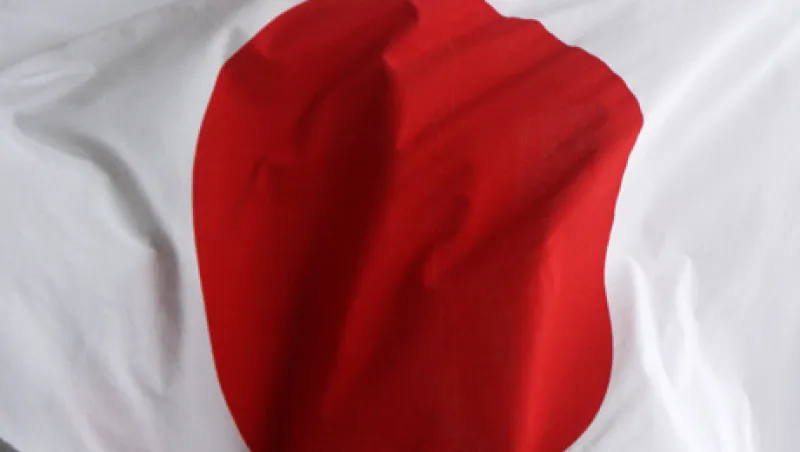The Japanese stock market closed on Thursday at an eight-month high, as improving prospects for exporters continued to boost prices.
The immediate trigger for the Nikkei 225’s 0.4 percent rise to 10,127 was the news that Japan had posted its first trade surplus since July — boosted by strong exports to the recovering U.S. economy. The Nikkei has soared by 15.2 percent since the beginning of February.
But although the marked upswing in the outlook for Japan’s biggest trading partners has triggered the recent meteoric rise, analysts say the gradual and hard-won enhancements in the underlying structure of the Japanese economy over the past decade have provided a crucial prop.
“There is a strong argument that Japanese equities are being supported by a fundamental improvement in the Japanese economy,” according to a research note from J.P. Morgan Asset Management. Because of corporate restructuring, “Japan Inc. is therefore much better able to take advantage of any modest upturn in either internal or external demand.”
The stock market has been boosted by the Bank of Japan’s February 14 decision to increase quantitative easing in an effort to meet a new inflation goal of 1 percent. Quantitative easing boosts the value of equities by increasing the supply of money. This also reduces the value of the yen, since the extra money is denominated in the local currency. This yen depreciation supports, in particular, the share prices of exporters, which dominate the Japanese stock market by making them more competitive overseas. The yen has sunk to Y82.7 to the U.S. dollar from a record high of close to Y76 in October.
But the Bank of Japan’s decision only partly explains the Nikkei’s recent buoyancy, which had already begun earlier in the year.
Part of the Nikkei’s rebound is because of the parallel rebound of Japan’s real economy from last year’s earthquake, which hit output by disrupting industrial production, freezing transport networks and hitting households’ daily consumption. Some factories are still working hard to compensate for the 2011 stoppages — and this is boosting output. There are also strong opportunities for companies to rebuild infrastructure and housing destroyed in the quake.
Responding to this, Deutsche Bank predicts growth in domestic demand of 2.6 percent in 2012 — compared with virtually no growth last year.
But the export market is the sector about which economists are most bullish. Deutsche forecasts that exports will surge by more than 6 percent in 2012, after failing to grow at all in 2011.
Taking the two sectors together, Deutsche concludes, “The economy should enjoy solid growth in 2012 thanks to reconstruction demand and a comeback in exports, with the U.S. and global economic recoveries.” Its overall forecast is for gross domestic product growth of 2.8 percent this year — a dramatic turnaround from last year’s decline of 0.7 percent.
Equity analysts are confident that this recovery will boost corporate earnings. Hidehiro Tomioka, head of equities at Manulife Asset Management Japan in Tokyo, says earnings growth is likely to exceed 20 percent in the year ending March 2013.
Japanese companies are in much better shape to benefit from these better business prospects at home and abroad, after a long and painful adjustment. They are more competitive because their labor costs have fallen relative to sales following many years of declining wages. Moreover, banks have shed most of the bad loans from their balance sheets, allowing them to lend more freely to finance capital expenditure among companies that want to invest to meet higher demand. High levels of corporate debt have gradually been transformed into large reserves of cash, giving companies war chests with which to fund expansion. “Corporate restructuring has made important progress,” says J.P. Morgan Asset Management.
The Japanese stock market is also benefiting from the powerful headwind of cheap valuation. Many Japanese companies, including the electronics conglomerate Sony and the banking giant Mizuho, are trading at a price-to-book ratio of below 1 — which means, theoretically at least, that if an investor bought the entire company and sold all the assets, it would make a profit.
Investors’ sunnier mood towards Japanese equities is borne by the latest Bank of America Merrill Lynch global survey of fund managers, published on Tuesday. Fund managers’ underweight position for the market has almost disappeared — a net 4 percent are underweight Japanese equities, compared with a hefty 23 percent in February. Managers’ Japan portfolios are heavily skewed towards two highly export-focused sectors: autos and industrials.
Tomioka of Manulife estimated there was potential for the Japanese stock market to gain even more ground, saying, “Japan is considered to be one of the high-beta markets, so if the global economy and stock market rallied further, Japan’s market would rise too.” Beta is a measure of correlation: the higher its beta, the more a market moves in correlation with other markets.
Many analysts think the biggest cloud on the horizon for Japanese equities is the price of oil. At almost $123 a barrel in Thursday afternoon’s European trading, Brent crude has risen by 22 percent from its October low. Energy costs are a significant drain on the Japanese economy, since Japan is reliant on imports for 84 percent of its needs. In particular, oil imports accounted for 45 percent of its energy in 2009 — and this figure will certainly have risen since last year’s earthquake, which reduced nuclear generation using uranium. The vast bulk of these oil imports are from the Middle East — leaving Japan vulnerable to any escalation in tensions in the region caused by the international diplomatic crisis over Iran’s nuclear facilities. The future path of Japanese equities remains, therefore, sensitive to good and to bad news alike on other continents.






